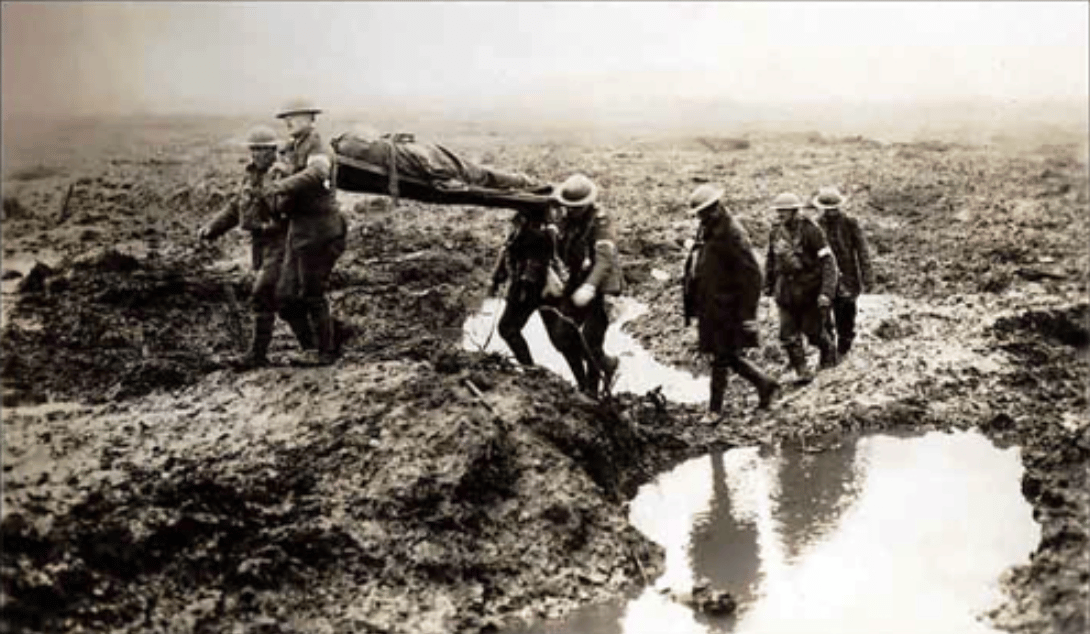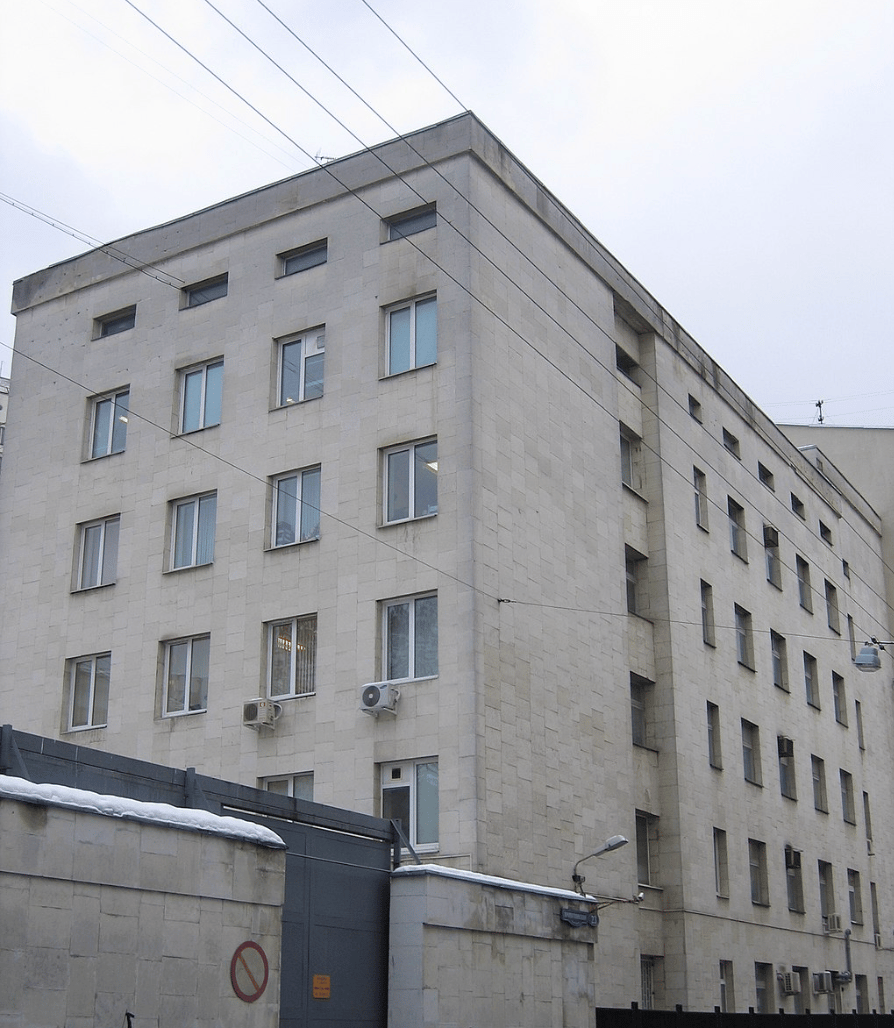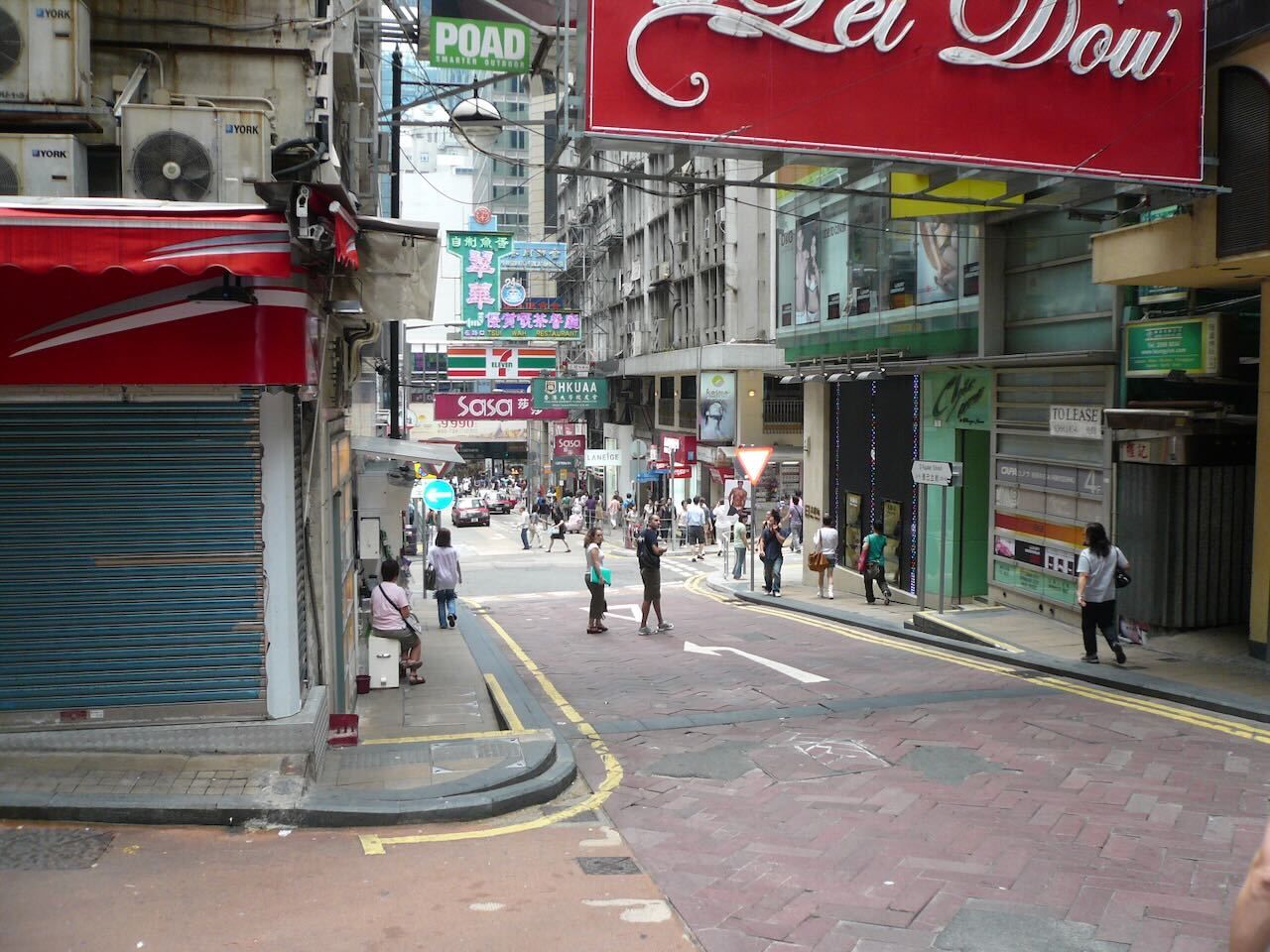- The Arrow
- Posts
- The Arrow #256 Veteran's Day, Redfield's Book, Freedom or Communism.
The Arrow #256 Veteran's Day, Redfield's Book, Freedom or Communism.
Since it’s Veteran’s Day here in the US (Remembrance Day in the UK and Canada), I thought it would be nice to commemorate those who gave it all.

Back in 2007, around the time I first started blogging, I wrote a post on the poem In Flanders Fields. I read it every November 11th and think of my grandfather who was in the trenches in Flanders. Enjoy and remember.
Redfield’s Warning
I just got a notice that Dr. Robert Redfield, who was Trump’s CDC Director during his first term, has a new book out titled Redfield’s Warning: What I Learned (But Couldn’t Tell You) Might Save Your Life. My first thought upon learning about this book is that it was written by an idiot. The reason I dubbed Dr. Redfield as an idiot was because of his response to a question in a congressional hearing.
It was known early on that the SARS-CoV-2 virus spread by aerosol transmission, and masks don’t do squat to protect against aerosols. Droplets yes'; aerosols, no. This is something one would think an MD virologist of long standing would know. He was right in a sense (unbeknownst to him, of course) that masks could be more effective than the Covid vaccine because a) the Covid vaccine wasn’t particularly effective in stopping transmission, and b) the Covid vaccine caused many vaccine injuries that the medical literature refused to publish during Covid, but that are beginning to be published right and left today. I’m sure as the next few years roll by, the mRNA Covid vaccines will be deemed a disaster by most everyone.
I did not purchase Dr. Redfield’s book, but I did click the Read Sample button to get a sense of what it was all about. There was one line in the early pages of the book that caught my eye and that I thought was absolutely correct.
The most surprising lesson learned from the Covid pandemic is how little we've learned from the Covid pandemic.
The quote struck me as being a pretty glaring truth. I suspect if such a pandemic came along tomorrow, our public health officials would do pretty much the same bone-headed things they did during Covid, despite knowing they didn’t work then and wouldn’t work now.
Based on the free part I read, it seems that Dr. Redfield’s thesis is that we’re in for a huge pandemic in the coming years, probably driven by bird flu. He says that the bird flu is hell on humans, but it is basically transmitted from bird to bird, not bird to human. A few cases have been transmitted from birds to humans, and he allows that once the virus figures out how to infect humans, we’ll be in for a helluva time. Maybe that isn’t the take-away message from the whole book, but it was the message I got from the 15 or so pages I read in the sample.
About the same time I got notice of Redfield’s new book, I read a piece by my guide to Russian literature Gary Saul Morson, which was his take on the public health response to Covid against a background of Soviet medicine.
The Arrow is a reader-supported guide to nutrition, medicine, books, critical thinking & culture. Both free and paid subscriptions are available. If you would like to support my work, the best way is by taking out a paid subscription.
Punitive Medicine
Gary Saul Morson got accepted in a PhD program at Yale, but his choice of French Literature was already full. So he opted instead to study Russian literature. I’m not sure I would have made that decision, but I’m glad he did. He has been my trusted guide in my long-term goal of reading all the major works by Russian authors. I’m a long way from finished, but his writings have helped me immeasurably.
I was surprised to come across his article titled “Punitive Medicine” in The New Criterion, one of my favorite online non-medical journals. I was surprised because what he usually writes about are the hidden depths in some piece of Russian literature. This time he did feature a Russian (Soviet) author, Alexander Podrabinek, who laid bare—at great personal risk—what was taking place in the Soviet psychiatric hospitals, which were not really hospitals, but punishment centers for those whom the government disfavored.
Morson links Podrabinek’s findings to what happened to the Western world during Covid. And what could happen that would be even worse.
When did reasonable people begin to distrust those who speak for “science”? Perhaps from the start of the coronavirus pandemic, when public officials presented educated guesses as “settled science”? Or was it when they went a step further and offered patently political opinions as scientific facts?
“Suddenly, Public Health Officials Say Social Justice Matters More than Social Distance,” Politico reported on June 4, 2020. Those who had followed strict instructions to avoid even outdoor church gatherings were told, by the same spokesmen for science, that Black Lives Matter marches were not only permitted, but even helpful. Did the abashed virus acknowledge the justice of the movement? Or had it suddenly turned out to be less deadly?
“We should always evaluate the risks and benefits of efforts to control the virus,” declared Jennifer Nuzzo, a Johns Hopkins University epidemiologist. “In this moment the public-health risks of not protesting to demand an end to systemic racism greatly exceed the harms of the virus.” This view, Politico reported, “was echoed by media outlets and some of the most prominent public-health experts in America,” such as the “former Centers for Disease Control and Prevention director Tom Frieden, who loudly warned against efforts to rush reopening but is now supportive of mass protests.”
Even if racism is seen as a threat to public health, that is surely not a conclusion belonging to epidemiology. It is not settled science because it is not science at all. Neither, for that matter, is the assumption that marches against racism will reduce it, let alone save more lives than suspended disease-prevention measures. What calculations were involved?
“Science” had evidently become a magic word used as a substitute for argument. As medieval thinkers forestalled objections by claiming a revelation from God, their modern counterparts invoke science.
One might ask: did Drs. Nuzzo and Frieden estimate how many lives might be lost during the next public-health crisis when people would no longer credit those who have betrayed their trust?
Experts who betray the public’s trust do especially great harm because they weaken the bonds on which society rests. It is one thing for a paymaster to take a bribe, quite another when a judge does. When judges are corrupt, justice itself suffers. One reason Russia remains impoverished is that corrupted courts render property rights insecure, which is why when large Russian companies sign a contract, they sometimes specify that disputes will be resolved in a British court.
When lawyers steal from their clients or doctors purposely harm their patients, they commit an offense not only against their victim but also against their profession and the public’s regard for it. That is why professional associations may take action. By the same token, when scientists go beyond the evidence or represent their social opinions as scientific facts, science itself comes into disrepute. All scientists are obliged to speak up. Very few do.
He goes on to describe what happens when supposedly honest and upright members of society holding important positions (public health, say) end up lying through their teeth. It destroys public trust in the institutions involved. And the more important the institution involved, the more damaging the wound.
Experts who betray the public’s trust do especially great harm because they weaken the bonds on which society rests. It is one thing for a paymaster to take a bribe, quite another when a judge does. When judges are corrupt, justice itself suffers. One reason Russia remains impoverished is that corrupted courts render property rights insecure, which is why when large Russian companies sign a contract, they sometimes specify that disputes will be resolved in a British court.
When lawyers steal from their clients or doctors purposely harm their patients, they commit an offense not only against their victim but also against their profession and the public’s regard for it. That is why professional associations may take action. By the same token, when scientists go beyond the evidence or represent their social opinions as scientific facts, science itself comes into disrepute. All scientists are obliged to speak up. Very few do. [My bold]

Soviet Psychiatric Hospital
The rationales and treatments for supposed mental disorders in the USSR almost defy belief, but they existed.
Religious believers might be diagnosed with “schizophrenia with religious delirium.” That diagnosis was especially likely for people who had come to God as adults. In their authoritative study Russia’s Political Hospitals: The Abuse of Psychiatry in the Soviet Union, Sidney Bloch and Peter Reddaway cite a psychiatrist’s explanation for one convert’s incarceration:
“Everything that you have just told us confirms us in the view that illness lies at the root of your “conversion.” Of course, you yourself cannot understand this; but you must have confidence in us; we are specialists. If you had grown up in a religious family or had lived somewhere in the West, well, then we could have looked at your religiousness in another way. . . . But you were educated in a Soviet school, and were brought up in a family of non-believers. . . .You are an educated person; I am ready even to admit that you know more about philosophy and religion than I do. . . . And suddenly . . . wham! . . . you are religious! . . . It’s very odd indeed . . . and makes one wonder if some abnormal processes were not already developing in you in your youth, which later on brought you to religion.
Remember during the pandemics many bars and restaurants were open, but many churches were forced to close. Why? Because the experts decided.
You must have confidence in us; we are specialists: these are the words of experts everywhere.
I encourage you to read the rest of Morson’s article for a couple of reasons. First, to understand how horrible it was in psychiatric hospitals, which were really punishment centers, in the years after Stalin. Second, as a cautionary tale to demonstrate how when science becomes a magic word to end all debate or argument instead of inviting a debate or argument, bad things can lay in wait.
Freedom or Communism

I’ve been meaning to post a Substack from a good friend of mine, Dale Saran, who was a Marine attack helicopter pilot, then a military lawyer, now a civilian lawyer suing on behalf of many military personnel who lost their positions for refusing the Covid jabs. His article is about the time he spent in China 8-10 years ago working for CrossFit helping to set up facilities there.
MD and I were in China for about ten days in 2008, but we were basically cosseted by the Chinese people who brought us there, so didn’t have a real chance to get out and do a lot of unobserved observing. Based on what we did observe, however, comports with what Dale observed in his much longer and more recent time in the country.
When I first visited for a week in December 2016, several of us were walking around the French Concession area in Shanghai and our guide pointed out (rather casually) the building where Mao Tse Tung first began lecturing and officially started the CPC – the Chinese People’s Congress. The building was rather… nondescript. In fact, it was indistinguishable as the birthplace of Chinese communism and posted a sign indicating “hours from 8-4, closed on Sundays, etc…” There was one sleepy-looking officer walking around trying to find something to do.
Not exactly what I’d expected from “communist” China. Something about the scene piqued my curiosity, so I turned to our host and guide:
“How much education do you get in school – like middle and high school – about communism?” He thought seriously about it for moment.
“Not much,” he said. “Maybe…” I could see him trying to calculate the time in his head, “…an hour?”
My colleague and friend Brian, who was walking with us, jumped in: “Come on!! An hour?!?” He laughed good-naturedly as he said it, but he was obviously calling booshit.
Our Chinese host turned to him seriously:
“Brain -” (whenever the Chinese try to say ‘Brian/Bryan’ it comes about as “brain” and I don’t know why, but I get a giggle every time I hear it. It’s never NOT funny, which tells you a lot about what a high school sophomore I still am).
“Brain -” he began patiently, “China’s history is… large -” He held his arms as far apart as they would go. “Communism takes up…” and now he held his right thumb and first finger apart about an inch, “a very small part of it.”
Whoops.
He goes on to describe the bureaucracy in China, which is almost non-existent…unless you decide to complain about the government. In the US, complaining about the government is an every day affair. In China, not so much.
But is complaining about the government really worth it? Even in the US? It does no good at all other than giving you something clever to post on X. All of your complaints fall on deaf ears. The only way I know I could influence the government is by making a substantial donation to someone or some group. And I can tell you, I don’t have the wherewithal to fork over enough funds to influence anything.
I can write a letter to my congressman, who will write me back telling me how important my letter was to him, but nothing will get done.
All the whining, bitching, carping, complaining about the government on social media will get you nothing…unless you threaten violence. Then you may attract some unwanted attention from the government.
But other than advocating violence, we are free to attack the government and individuals in the government. Not so in China. It’s like a golf club with a very conservative dress policy that I’m a member of. When I first got in, I asked a fellow member if I could wear jeans to the club. His answer: “Once.”
It’s about the same in China with bashing the government.
But there is another side of the coin. Whereas we’re free to rant all we want about our leaders, we’re not really free in many other ways.
On the other hand, you would be amazed at how much less you have to bitch about when you get to keep a bigger chunk of your money and are free to earn without impediment by the government. I hadn’t realized just how over-regulated the US was until I came to China. And it makes perfect sense: you can’t possibly regulate 1.4 billion people. You’d have to have a bureaucracy of 500 million… And so the Chinese are largely left to earn and keep as they can. I walk around neighborhoods all the time where the local version of the copy shop is a tiny, tiny hole in the wall with a fax machine or two, a computer and printer, and an old Xerox copier. Some local person has cobbled it all together to serve that neighborhood. There is no gleaming “OfficeMax” or “FedEx.” I can guarantee you that not a single government official has been consulted in the setup of that business. I assure you that there is no certificate of occupancy issued or other maze of regulations that impedes people from starting a business to serve their local fellows and make a buck.
The same is true of most little tea shops and restaurants. There is no sign assuring the locals that the health inspector has been there or that the myriad of regulations that stand between the poor and their own business have been complied with. Now, some of you are thinking, “OMG! B-but, but – how will they know that the food is safe?!” To think that a certificate on the wall guarantees food safety, however, is to prove just how brainwashed we are in the US. No certificate on the wall guarantees you won’t eat bad food. It happens all of the time in the US, notwithstanding all of the USDA and other regulators we have. And the same is true of financial markets and every other thing that is hyper-regulated. (Covid vaxes, anyone?) There were 37 regulator on the floor of all of the major trading houses when the financial markets shit themselves in 2008. Afterwards the bureaucracy added another half-dozen or so useless eaters who didn’t understand the products they were regulating.
Let’s suppose we have two restaurants, one that has complied with every single law and regulation and health inspection and one that has not. How would we know the difference? In other words, forget about the certificate on the wall and the false confidence it gives you for a moment. In real, concrete terms, how would anyone know that something was “wrong” in food quality, cleanliness, etc. (in either place)? The answer is identical in either case – no one would know until someone gets sick enough and can trace that sickness back to the restaurant. But that would be true whether you had the “certificate” or not. In other words, the certificate doesn’t prevent anyone from getting sick. It’s a false assurance. I could comply with all of the regulations and then decide that the costs were too much to continue to bear and start cutting corners and no health inspector is going to come in there and “catch me.” They come by – if at all – once a year for inspections. Maybe.
Yet the most direct feedback – and the most deleterious thing for a small shop owner – is not a health inspector: it’s the locals who frequent it. If the people in the local area are getting sick, they will tell everyone else that you make food that makes people sick. You couldn’t survive in a small neighborhood for more than a few weeks to a month (I would bet even less) if you were a small shop owner in one of these tiny neighborhoods selling crappy food.
And so we have to ask ourselves: at what cost health inspectors and regulators and bureaucrats? Because the costs that are associated with all of those things are born disproportionately by the poor. It takes vast (excessive) amounts of capital to open a small restaurant in the face of all of those regulatory requirements and minimum wages and labor laws and OSHA reqs on and on.
This comports with what MD and I observed in our time there. We spent time in huge cities with skyscrapers a mile high. There were nice restaurants all over the place, but at dusk every night each corner of a street would be taken up by what appeared to be a family with a wok and/or a grill cooking food to sell to passersby. Imagine that happening in the US.

So, the question I’ve been pondering, and the one I want to ask you, is: which system would you prefer to live under? One in which you kept most of the money you earned; one in which if you had an entrepreneurial bent, you could set up your business without countless fees and trips to various bureaucracies; or if you wanted to work a second or third job to save up for something, it all wouldn’t be eaten in taxes?
But you couldn’t bitch about the government.
Or a system like we have in the US and Europe, where we can complain all we want (on most cases to no avail)? Yet we give up most of our income to the government.
Since I read Dale’s Substack, that question has been haunting me.
That’s about it for this week. Keep in good cheer, and I’ll be back soon.
Please help me out by clicking the Like button, assuming, of course, that you like it.
This newsletter is for informational and educational purposes only. It is not, nor is it intended to be, a substitute for professional medical advice, diagnosis, or treatment and should never be relied upon for specific medical advice.
Thanks for reading all the way to the end. Really, thanks. If you got something out of it, please consider becoming a paid subscriber if you aren’t yet. I would really appreciate it.
Finally, don’t forget to take a look at what our kind sponsors have to offer. Dry Farm Wines, HLTH Code, Precision Health Reports, and Jaquish Biomedical.
And don’t forget my newest affiliate sponsor Lumen. Highly recommended to determine whether you’re burning fat or burning carbs.
Reply